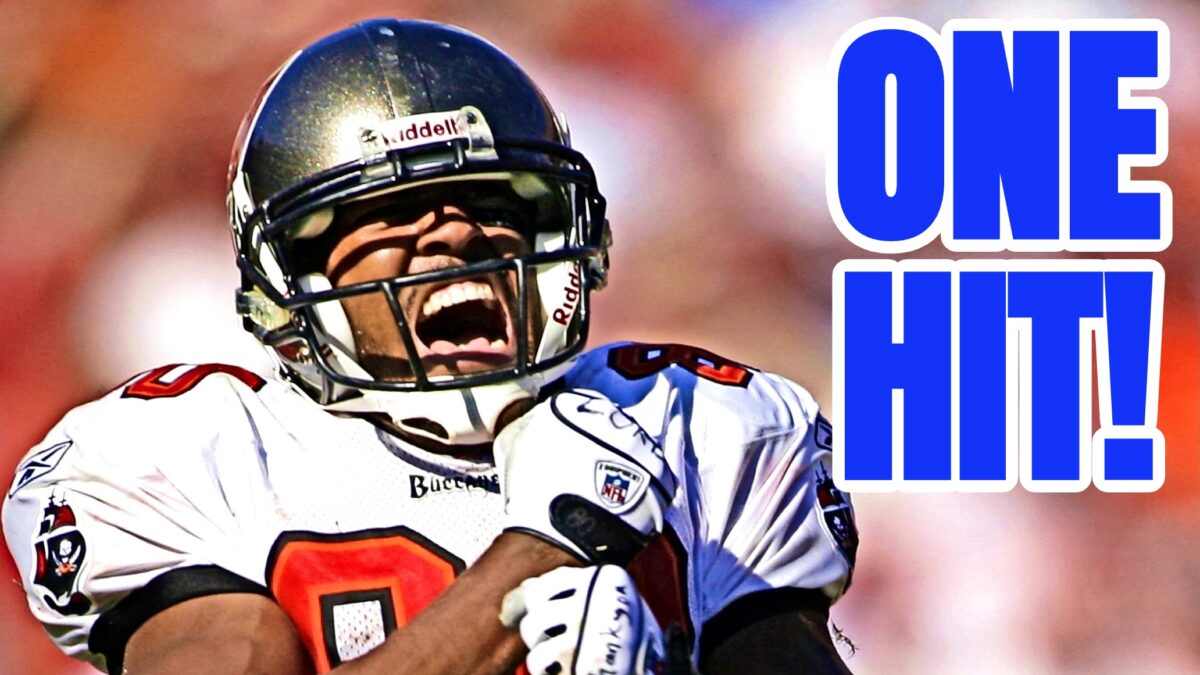
In the world of football, there are few things stranger than a one-hit wonder.
Over the years, we’ve seen many NFL players perform at a superstar and Hall of Fame level for one game or even an entire season. It all came together for one brief period of time, but then they inexplicably regressed and never captured that same level again.
It’s like the “Jaws” movie series. Steven Spielberg hit it out of the ballpark with the first installment, and then the series got worse and worse with each new sequel.
With that all said, here are the 10 biggest one-hit wonders in the history of the NFL.
Robert Griffin III
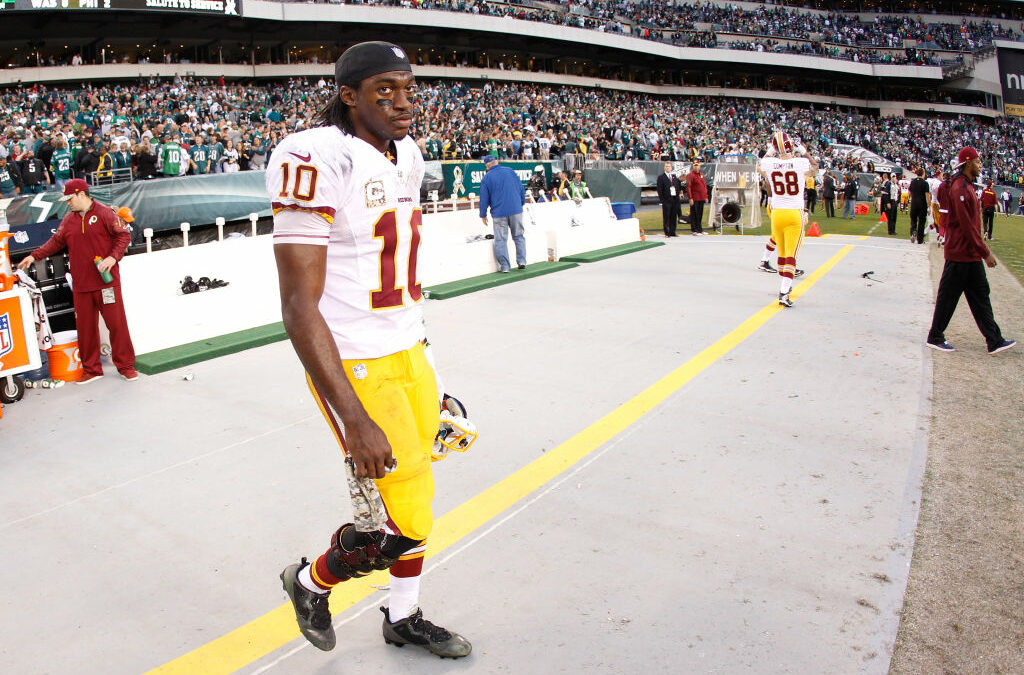
Griffin is a sad case. It wasn’t at all his abilities that held him back from being a perennial superstar in this league. Rather, it was the complete mismanagement and gross incompetence of his health by the Washington NFL club.
Washington traded up via the St. Louis Rams to get the No. 2 selection. They then used the pick on the 2011 Heisman Trophy winner, and for one year, RG3 totally lived up to the hype.
Click on ‘Follow Us’ and get notified of the most viral NFL stories via Google! Follow Us
As a rookie, Griffin won nine of 15 starts and powered Washington to a surprise NFC East division title. He completed 65.6 percent of pass attempts for 3,200 yards and 20 touchdowns against five interceptions to go along with 815 rushing yards and seven touchdowns.
Griffin suffered a knee injury late in the year and didn’t receive clearance from Dr. James Andrews to return to action, but Washington continued to play RG3 anyway. He worsened his knee injury in the Commanders’ Wild Card Round playoff loss to the Seattle Seahawks and required surgery on a torn ACL.
Griffin endured a tough sophomore season, losing 10 of his 13 starts. He was limited to seven games in 2014 and then backed up Kirk Cousins for the entirety of 2015. A one-year stop with the Cleveland Browns did nothing to save RG3’s career.
Griffin spent three seasons as Lamar Jackson’s backup in Baltimore from 2018 to 2020 before finding himself out of football altogether. More than a decade later, we’re left wondering what could’ve been if Washington didn’t terribly mishandle Griffin’s health and knee injury.
David Tyree
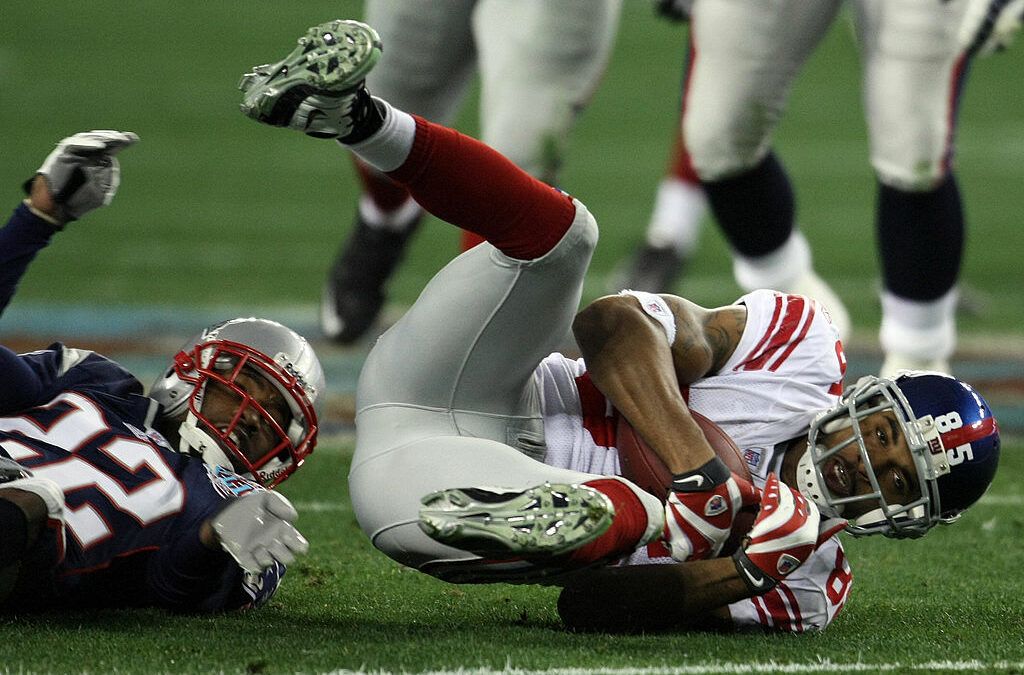
This is the beauty of football. In the words of Christian Bale’s Batman from The Dark Knight Rises, “A hero can be anyone.”
Take the case of David Tyree. A sixth-round pick of the New York Giants in 2003, Tyree only had 54 career receptions for 650 yards and four touchdowns. You’ll see that he was named a Pro Bowler and First-Team All-Pro in 2005, but that was as a special teams player.
In the 2007 season, Tyree only caught four passes for 35 yards and no touchdowns.
Needless to say, the Giants needed all the help they could get in Super Bowl 42 against the record-setting and undefeated New England Patriots. Back to the whole “A hero can be anyone” thing…yeah that was Tyree!
In the fourth quarter of the big game, Tyree caught a go-ahead touchdown pass in the fourth quarter. The Patriots regained the lead late with a Tom Brady strike to Randy Moss, setting the stage for one of the all-time great one-hit wonder stories.
Facing a 3rd-and-5 situation with just over a minute left, Eli Manning somehow avoided a sack and threw a desperate 32-yard heave downfield. The latter, with Rodney Harrison all over him, pinned the football to his helmet and somehow held onto it for a 32-yard catch.
Four plays later, Plaxico Burress caught the game-winning touchdown pass from Eli to stun the Patriots. With that, the G-Men had just completed one of the all-time great upsets while spoiling New England’s bid for an undefeated season.
Tyree missed the entire 2008 season to injury and wouldn’t play for the Giants again. He suited up in 10 games for the Baltimore Ravens in 2009 but didn’t record a catch, and Tyree proceeded to announce his retirement.
Hey, if you’re going to be a one-hit wonder, you wanna do it David Tyree style.
Don Majkowski
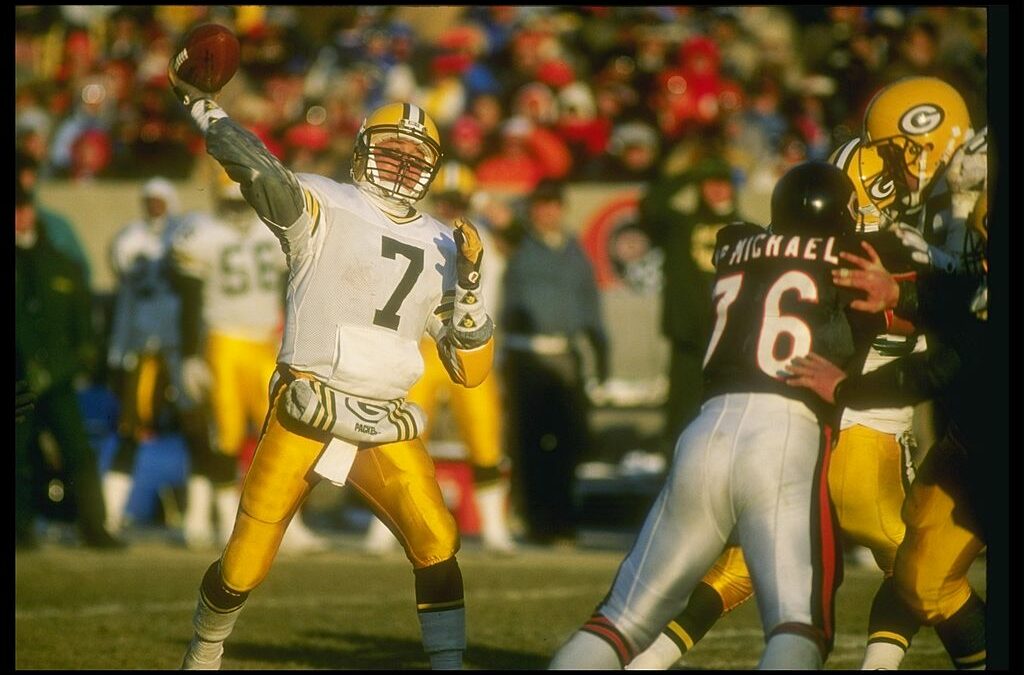
A few years before Brett Favre took over as the Green Bay Packers’ new franchise face in 1992, Majkowski looked like he would be the future in Titletown. For one year, that was.
The No. 255 selection of the 1987 NFL Draft showed the makings of a franchise signal-caller in 1989. That year, he tossed a league-leading 4,318 passing yards and 27 touchdowns against 20 interceptions.
Despite finishing with a 10-6 record, the Packers wound up missing out on the postseason. Majkowski, for his efforts, earned Pro Bowl nods and second-team all-pro nods.
Turned out, it wasn’t at all a breakout season for Majkowski. He was never a full-time starter in the NFL again, never even hitting 2,000 passing yards in a single year again. Majkowski lost his starting job for good when he went down with an ankle injury in a 1992 game against the Cincinnati Bengals.
Brett Favre took over as the starter from there, and the rest is history. Favre started every game for the Packers through the 2007 season, and Majkowksi would spend the remainder of his career as a backup QB.
Timmy Smith
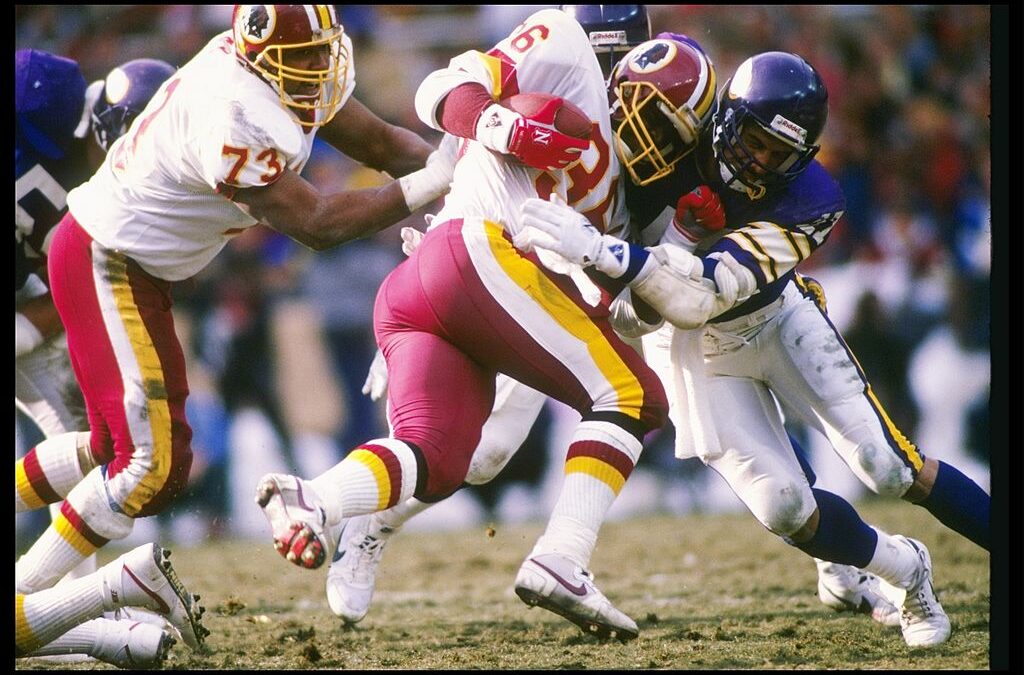
Smith played three seasons in the NFL. He finished with 602 career rushing yards and three touchdowns. Smith never rushed for more than 470 yards in a single-season, but like several others on this list…he saved his absolute best for when it mattered most.
Smith wasn’t exactly a known commodity when his Washington squad met the Denver Broncos in Super Bowl 22. And though it was quarterback Doug Williams who won MVP honors in Washington’s blowout Super Bowl victory, Smith was just as vital with 204 rushing yards on 22 carries and two total touchdowns.
Smith’s 204 rushing yards remain a Super Bowl record. Incredibly, his final NFL season was with the Dallas Cowboys in 1990 — just three years after powering Washington to a Super Bowl championship.
Terdell Middleton
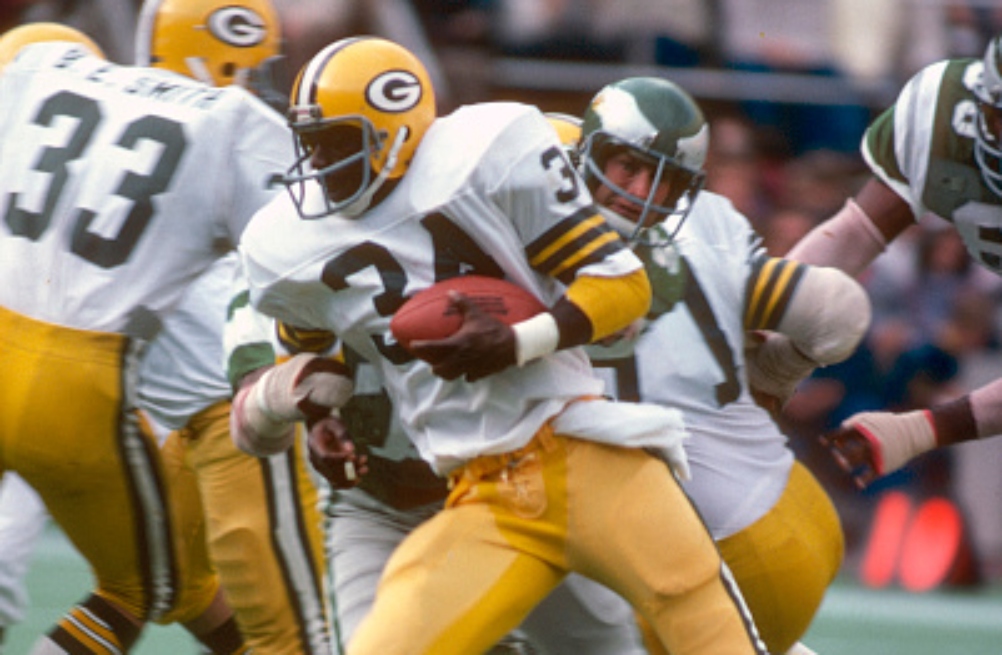
The St. Louis Cardinals made the Memphis product a third-round pick at No. 80 overall in 1977, but he was traded to the Green Bay Packers later that year. As a rookie, Middleton saw 35 carries for 97 yards.
Then in 1978, Middleton went off for 1,116 yards and 11 touchdowns, earning the lone Pro Bowl nod of his career. Inexplicably, Middleton just never came close to performing like a star again. Over the next three years, his rushing totals were: 495, 155 and 181.
He spent one more year with the Tampa Bay Buccaneers in 1983, rushing for four yards on two carries before joining the Memphis Showboats of the USFL.
Dexter Jackson
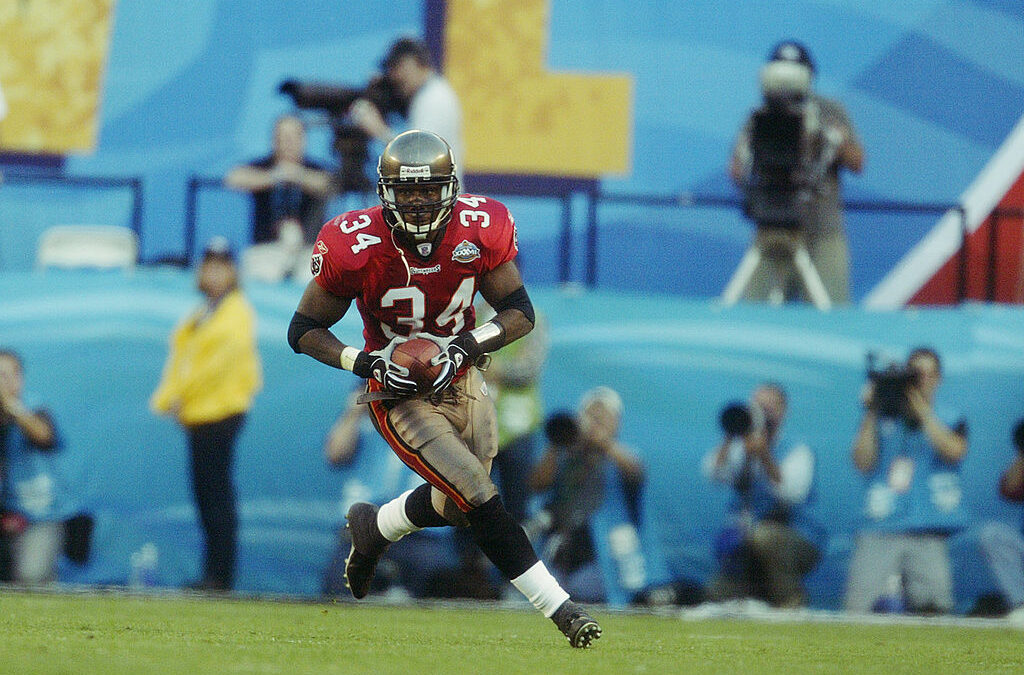
The Tampa Bay Buccaneers defense in the Tony Dungy/Jon Gruden era was simply one of the best ever. It featured Hall of Famers Warren Sapp, Derrick Brooks, Ronde Barber and John Lynch plus three-time Pro Bowler Simeon Rice.
Yet incredibly, none of those guys were the Super Bowl 37 MVP when the Buccaneers hammered the Raiders. Nope, it wasn’t quarterback Brad Johnson or wide receivers Keenan McCardell or Keyshawn Johnson.
The Super Bowl 37 MVP was none other than Dexter Jackson, not exactly the biggest household name through the first three years of his career. Jackson was a fourth-round pick of the Buccaneers in 1999, but few people outside of Tampa surely knew much about Jackson before the biggest game of his life.
Jackson was named MVP of the big game after tallying two interceptions, as the Bucs cruised to a 48-21 blowout win for their first championship in franchise history.
Jackson joined the Arizona Cardinals for one year in 2003 before coming back to Tampa for two more seasons. He played for the Cincinnati Bengals from 2006 to ‘08 before signing with Florida’s United Football League team.
For his career, Jackson didn’t earn a single Pro Bowl or All-Pro nod. He had 17 total interceptions, 41 pass defenses and five sacks. But he’s a living legend in Tampa because, ultimately, Jackson saved his very best for the biggest game of his life.
Michael Clayton
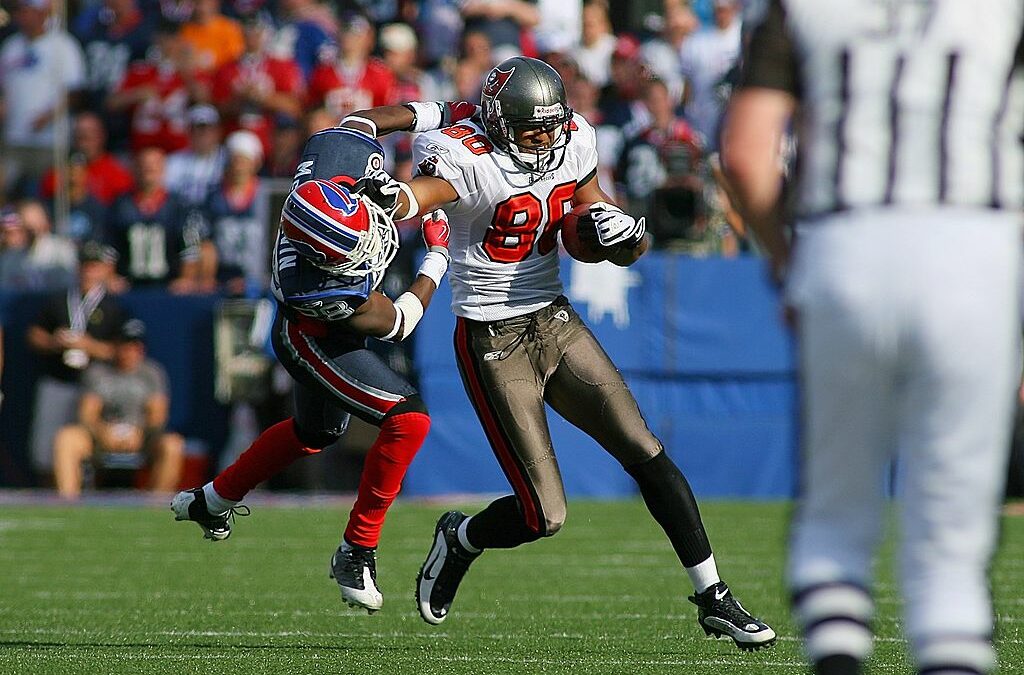
Speaking of former Buccaneers…
The Bucs drafted the big 6-foot-3 LSU wideout with the No. 15 selection in 2004…and it simply didn’t take long for Clayton to introduce himself to the league.
Clayton racked up 80 receptions for 1,193 yards and seven touchdowns — giving Tampa Bay a new long-term foundational piece to build around. Or so we thought…
Not only was Clayton never a 1K receiver again, but he didn’t even reach 50 percent of his 2004 totals in a single season again. After his rookie year, Clayton’s next-best year was 2008, when he caught just 38 passes for 484 yards and one touchdown.
On the bright side, Clayton did win a Super Bowl 46 championship ring with Eli Manning’s New York Giants in the 2011 season — Clayton’s last in the league. Still, it’s just impossible to comprehend how he went from a borderline superstar as a rookie to completely irrelevant the rest of the way.
Larry Brown
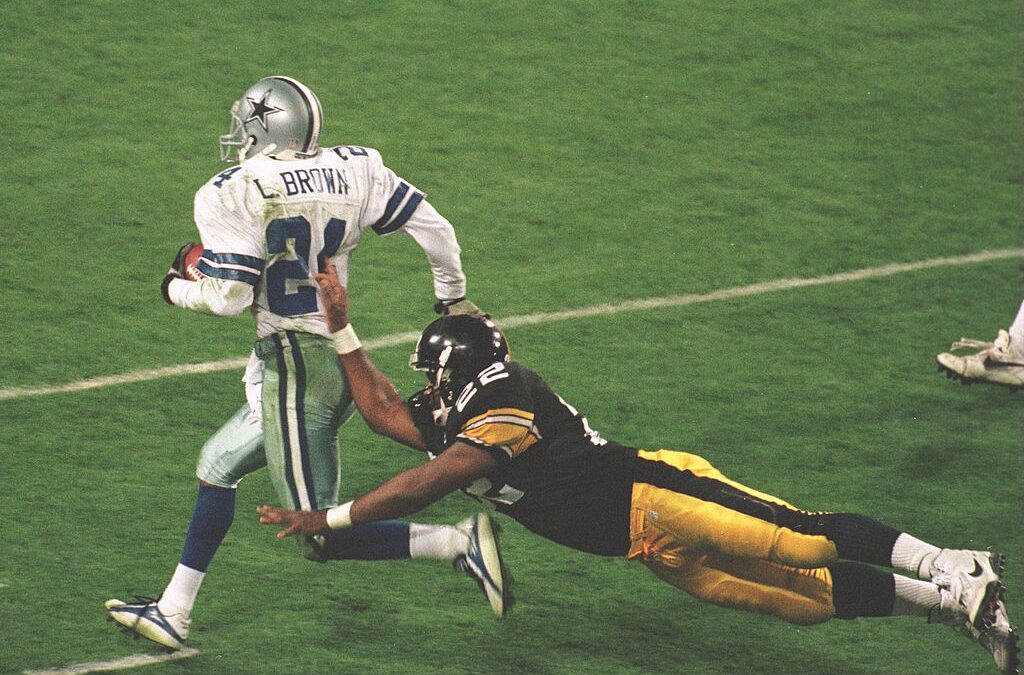
He’s a living legend in Dallas Cowboys land. But if it weren’t for one special performance on football’s grandest stage, Brown wouldn’t be that well-known among football fans.
He was a 12th-round draft pick of the Cowboys in 1991, so expectations were never that high for Brown. He was never a Pro Bowler or All-Pro, though the TCU product did record a career-high six interceptions in the 1995 season.
That same year, Brown and the Cowboys defeated the Pittsburgh Steelers in Super Bowl 30 to claim their third Super Bowl in four years. Brown was named Super Bowl MVP after recording two interceptions off Neil O’Donnel in Dallas’ 27-17 win.
The Oakland Raiders got too excited about one big-time performance and paid Brown like a star in 1996 free agency, handing him a five-year deal worth $12.5 million. He made just 12 game appearances over two seasons there before returning to Dallas for his final NFL season in 1998.
Rex Grossman
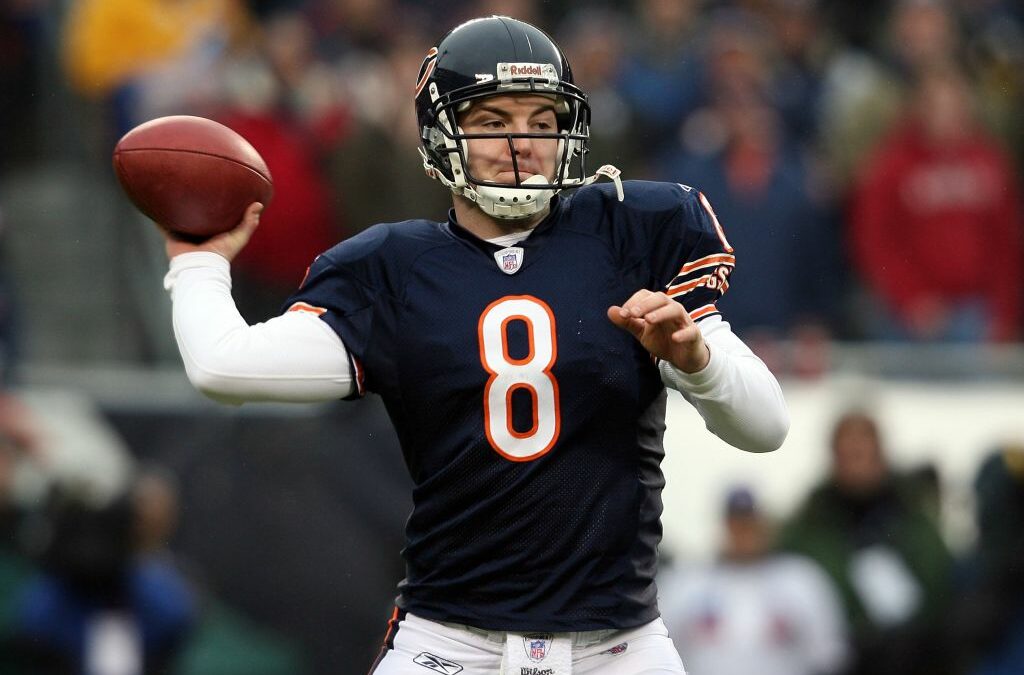
Grossman spent nine seasons in the NFL. He was the primary starter for two of them.
His first season as a starting QB was for the Chicago Bears in 2006. Make no mistake, Grossman was fortunate to play with the league’s No. 3 scoring defense that allowed only 15.9 points per game. And with special teams GOAT Devin Hester. And with the dynamic rushing duo of Thomas Jones and Cedric Benson.
But credit where it’s due. Grossman pieced together a solid campaign in which he tossed 3,193 yards and 23 touchdowns… though he also tossed a whopping 20 interceptions. His efforts were enough to help the Bears secure the NFC’s top seed, and they went on to meet Peyton Manning’s Indianapolis Colts in Super Bowl 41.
But that’s where it all came crashing down. Grossman threw two interceptions — including one pick-six — and lost a fumble. His awful play in the rain-filled Dolphin Stadium was a deciding factor in the Bears’ heartbreaking 29-17 loss.
Suffice to say, Grossman never recovered from this game. Brian Griese took over as the main starter in 2007, all but ending Grossman’s tenure as the Bears’ QB1. He was the starting QB on a lousy Washington team in 2011 — tossing 16 touchdowns against 20 interceptions which all but secured his fate in the NFL. Grossman made it clear from there that he wasn’t a starting-caliber QB and never played in the NFL again.
There will always be ‘06 Grossman — not to mention the epic “Sexy Rexy” nickname. That part lives on!
Steve Beuerlein
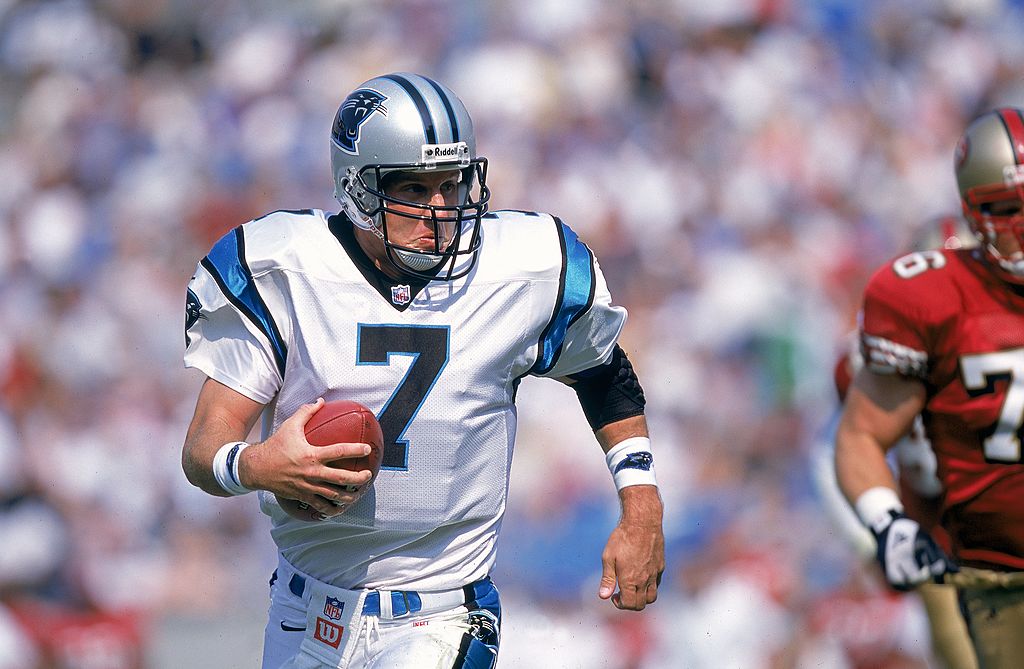
This journeyman signal-caller had two career highlights. The first: Winning Super Bowl 27 as a backup to Troy Aikman’s Dallas Cowboys in the 1992 season.
The second highlight: Beurlein’s 1999 season.
That year, Beuerlein took his game to an MVP-like level for the Carolina Panthers. He led the NFL with 4,436 passing yards and 36 touchdowns against 15 interceptions to earn the lone Pro Bowl nod of his career.
And that, folks, was peak Steve Beuerlein as an NFL quarterback. The next year, had 19 touchdowns against 18 interceptions and spent the remainder of his career as a backup — last playing for the Denver Broncos in 2003.
1999 was the lone year in which Beuerlein exceeded 3,800 passing yards and 20 TD passes in a season. If that isn’t the definition of a one-hit wonder, then what is?























